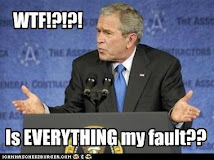Jimmy Carter won the White House in 1976 by riding the wave of anger and disillusionment that followed Gerald Ford's pardon of Richard Nixon. Carter tapped into that anger with the slogan "I will never lie to you." An angry electorate, disgusted with Nixon, decided that was reason enough to give Carter the presidency. He won, in large part, because he made it clear that he wasn't Richard Nixon.
Pundits called Carter a political genius.
Four years later, however, he was a political pariah. Voters embraced Ronald Reagan because he wasn't Jimmy Carter, proving that good slogans do not necessarily produce good government.
Unlike Carter, Reagan had more than slogans. He came to Washington with a clear plan to revive the economy and overhaul the tax code, revitalize the military, and, most important, boost the national spirit. He saw the Republican Party as a "big tent," and he successfully did what is considered political suicide today: He worked across party lines and tried to find compromise.
With Carter, Democrats had the White House for one term; with Reagan and the first George Bush, the Republicans held it for three. That has happened only once since World War II.
There's a profound lesson in this for the Tea Party movement.
Like those who voted for Carter because they were fed up with Nixon, the Tea Party is made up of people who are fed up with Washington profligacy. The combination of the Obama stimulus package, a bloated budget, stubbornly high unemployment and an expensive new health-care entitlement program has fueled their anger, convincing them that the federal government is out of touch and not listening. To a large extent, they're right.
Their two strongest slogans are "Send a message to Washington" and "Take back America." I know both very well because they were the main tools used to defeat me in Utah's Republican convention two weeks ago. They also worked in Kentucky on Tuesday. They are more powerful than most pundits inside the Beltway realize.
Yet when the new members of Congress whom these slogans elect in November take office, the question becomes: Will they be Carter or Reagan?
Will they stand firmly on partisan sidelines continuing to shout slogans? Or will they reach across the aisle in the interest of the country? Will they offer constructive proposals to help solve our problems?
As president, Carter was downright depressing. His famous "malaise" speech warned us that America's best days were behind us and suggested that we are a country in irreversible decline. Too many Tea Party speeches sound the same note, even as they invoke Ronald Reagan's name. They are wrong to do so, in my view, because Reagan never lost his optimism and his hope for the future. He was elected because he was good at slogans, but he succeeded as president because he focused on solutions.
I urge all of the Tea Partyers to follow Reagan, not Carter. If they want their movement to be more than a wave that crashes on the beach and then recedes back into the ocean, leaving nothing behind but empty sand, they should stop the "gloom talk." These are not the worst times we have ever faced, nor is the Constitution under serious threat.
Our economy is still the strongest and most resilient in the world. Our government is still capable of responding to the leadership of men and women who believe our problems can be solved. We must not follow the siren song of those who are in a frenzy of despair.
After all, we survived Jimmy Carter, didn't we?
Op-Ed in The Washington Post
Sunday, May 23, 2010
Subscribe to:
Post Comments (Atom)






















1 comment:
Good point. Reagan was a great politician for many reasons. Foremost was his belief in America.
Post a Comment